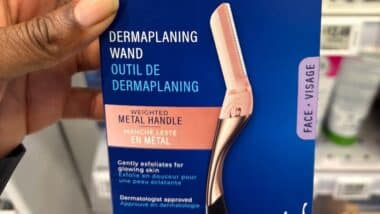Unfair bank NSF fees: Who’s affected?

Were you charged multiple NSF fees for a single bounced payment? You may be eligible to recover a portion of those fees.
Consumer protection laws prohibit banks and credit unions from charging account holders more than one non-sufficient fund (NSF) fee for a single “failed” or bounced transaction. However, consumers alleged that some financial institutions have charged multiple NSF fees when a payee attempts to resubmit a payment before the account holder is able to deposit sufficient funds.
Do you qualify?
If you paid multiple NSF fees on a single bounced check or denied electronic payment (ACH payment), you may be eligible to recover a portion of those charges.
Fill out the form on this page for more information.
What are NSF fees?
Banks and credit unions charge NSF fees to account holders who do not have enough money in their checking accounts to cover a payment. NSF fees are charged when a transaction is declined due to insufficient funds.
Under the pressure of enhanced regulations, most major banks and credit unions have eliminated NSF fees, which has saved consumers nearly $2 billion annually. However, some banks and credit unions continue to charge these fees.
The problem with NSF fees
While NSF fees are technically legal, they can amount to allegations of “overcharging” when they’re applied multiple times to the same transaction. These fees can quickly add up for consumers who are already struggling financially. They also add up for financial institutions in the form of billions of dollars in revenue.
Because of this, the Consumer Financial Protection Bureau (CFPB) and the government have been working to eliminate unfair banking fees and other types of “junk fees.”
Junk fees affect everyone, but they disproportionately impact lower-income families and people of color.
NSF fee lawsuits
Many banks have been hit with class action lawsuits alleging excessive overdraft fees and NSF fees. Several of these have resulted in multi-million dollar class action settlements for banks such as Capital One, Bank of America and more.
To prevent consumers from taking action in court, many financial institutions include arbitration clauses in the fine print of their service agreements. Arbitration agreements prevent consumers from taking legal action in court and instead require them to go through a private dispute resolution process.
Going up against a big company in arbitration can be daunting, but help is available. If you were charged multiple NSF fees for a single transaction, don’t let an arbitration prevent you from seeking recourse.
Fill out the form on this page to see if you qualify for a FREE case evaluation.
See If You Qualify
Join a bank NSF fee lawsuit investigation
Filling out this form is quick and easy. It only takes a few minutes to see if you qualify.
After you fill out the form, an attorney(s) or their agent(s) may contact you to discuss your legal rights.
ATTORNEY ADVERTISING
The choice of a lawyer is an important decision and should not be based solely on advertisements.
PAID ATTORNEY ADVERTISEMENT: THIS WEB PAGE IS AN ADVERTISEMENT AND THE PARTICIPATING ATTORNEY(S) ARE INCLUDED BECAUSE THEY PAY AN ADVERTISING FEE. Top Class Actions is not a law firm, lawyer referral service, or prepaid legal services plan. We do not endorse or recommend any third-party claims processing company, lawyer, or law firm who participates in the network. We do not make any representation, and have not made any judgment, as to the qualifications, expertise, or credentials of any participating lawyer or processing group. No representation is made that the quality of the legal services or claims processing to be performed is greater than the quality of legal services or claims processing performed by other lawyers or claims processing group. The information contained herein is not legal advice. Any information you submit to Top Class Actions does not create an attorney-client relationship and may not be protected by attorney-client privilege because Top Class Actions is not a law firm. Instead, your information will be forwarded to an attorney(s) or their agent(s) or a claims processing firm for the purpose of a confidential review and potential representation if you qualify. You will only be contacted by an attorney(s) or their agent(s) in response to your inquiry if your initial information appears to qualify you for representation. If you are not contacted by an attorney(s) or their agent(s) within one week, you should consult another firm since all legal claims are subject to filing deadlines. All photos on this website are stock art and do not depict clients.












